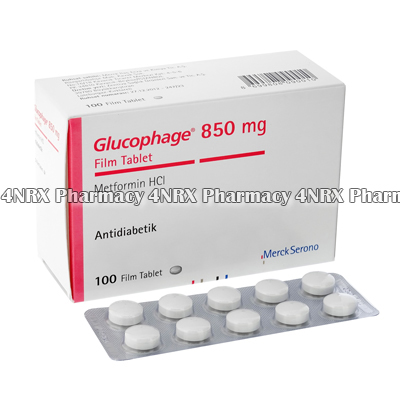 |
Home  Diabetes Diabetes  Glucophage (Metformin Hydrochloride) Glucophage (Metformin Hydrochloride) |
|
|||||||||
|
|
Glucophage (Metformin Hydrochloride)
What is Glucophage (Metformin Hydrochloride) used for? Glucophage 1000mg (Metformin Hydrochloride) is a hypoglycemic drug used in patients with type 2 diabetes mellitus. Glucophage 1000mg (Metformin Hydrochloride) improves the status of patients with type 2 diabetes by reducing glucose, glycosylated hemoglobin, and increasing glucose tolerance. Glucophage 1000mg (Metformin Hydrochloride) also reduces absorption of glucose in the intestine and improves the sensitivity of peripheral tissues to insulin, which improves the absorption of glucose and its metabolism. The drug does not increase insulin secretion by the beta-cells of the pancreas, and vice versa, the level of insulin in the onset can decrease, due to the improvement of receptor sensitivity to it. Glucophage 1000mg (Metformin Hydrochloride) helps to lower body weight and balance lipidograms, reduce the number of triglycerides, low density lipoprotein. On other cholesterol fractions Glucophage 1000mg (Metformin Hydrochloride) does not affect. How should I use Glucophage (Metformin Hydrochloride)? Always follow your doctor`s instructions when using Glucophage 1000mg (Metformin Hydrochloride) to get the safest and most effective results from treatment. The dosage is prescribed by the doctor individually for each patient. It depends on many factors, such as severity of diabetes mellitus and functioning of the kidneys. Glucophage 1000mg (Metformin Hydrochloride) is usually used in cases where lower dosages are ineffective. Maximum daily dose of Glucophage 1000mg (Metformin Hydrochloride) is 3000 mg (1 tablet 3 times a day). What are the side effects of Glucophage (Metformin Hydrochloride)? The use of Glucophage 1000mg (Metformin Hydrochloride) may cause side effects in some patients including:
In rare cases lactate acidosis may develop, which manifests weakness, drowsiness, hypotension, resistant bradyarrhythmia, respiratory disorders, abdominal pain, myalgia, hypothermia. Contact your doctor immediately if you experience any serious or worrying symptoms. Please Note When using the drug should constantly monitor kidney function, glomerular filtration, glucose level in the blood. Especially careful monitoring of blood glucose is necessary when using metformin in combination with sulfonylurea or insulin (risk of hypoglycemia). Combined treatment with metformin and insulin should begin in the hospital until an adequate dose of each drug is established. 





|
||||||||||||||||||